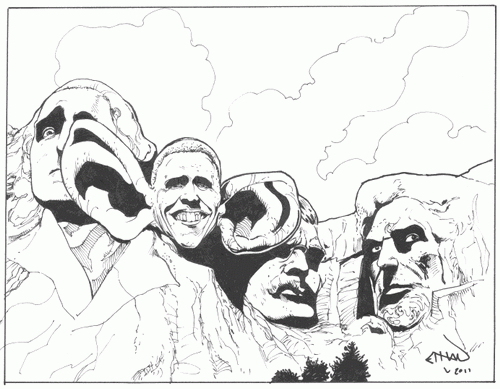Today, U.S. Senator Jim DeMint (R-S.C.), a member of the Senate Commerce Committee that oversees the Corporation for Public Broadcasting (CPB), and U.S. Senator Tom Coburn, M.D. (R-Oklahoma) introduced legislation to stop taxpayer subsidies to public radio and television. CPB-funded television and radio programs are distributed through National Public Radio (NPR) and the Public Broadcasting Service (PBS). Since 2001, CPB has received nearly $4 billion in taxpayer money.

“Our nation is on the edge of bankruptcy and Congress must make some tough choices to rein in spending, but ending taxpayer subsidies of public broadcasting should be an easy decision,” said Sen. DeMint. “Americans struggling to make ends meet shouldn’t be forced to fund public broadcasting when there are already thousands of choices for educational and entertainment programming on the television, radio and web. President Obama’s own bipartisan debt commission proposed ending these unnecessary subsidies to public broadcasting. NPR boasts that it only gets 2 percent of its funding from taxpayers and PBS gets about 15 percent, so these programs should be able to find a way to stand on their own.”
“Politicians in Washington should focus their attention on eliminating the more than $200 billion in duplicative spending GAO highlighted this week and stop defending indefensible subsidies for public broadcasting,” said Dr. Coburn. “The federal government has no business picking winners and losers in today’s highly competitive media environment. NPR and CPB will do just fine without largesse from Washington.”
CPB was incorporated as a private nonprofit corporation under the authority of the Public Broadcasting Act of 1967, and its first taxpayer subsidy in 1969 was $5 million. Today, CPB is slated to receive $430 million from taxpayers in the current fiscal year and President Obama recently asked for an increase to $451 million.
According to the 2009 tax forms all nonprofits are required to file (990), PBS President Paula Kerger received $632,233 in compensation that year while NPR President Emeritus, Kevin Klose, received more than $1.2 million in compensation. The PBS program Sesame Street’s Sesame Workshop President and CEO Gary Knell received $956,513 — nearly a million dollars — in compensation in 2008. And, from 2003 to 2006, “Sesame Street” made more than $211 million from toy and consumer product sales.
In 2010, NPR accepted a controversial $1.8 million grant from the Open Society Foundation, backed by liberal financier George Soros, to hire 100 reporters. Additionally, NPR has an endowment of over $200 million.
List of federal funding for CPB over the years, provided by the Congressional Research Service:
2001: $340 million
2002: $350 million
2003: $362.8 million
2004: $377.8 million
2005: $386.8 million
2006: $396 million
2007: $400 million
2008: $393 million
2009: $400 million
2010: $420 million
2011: $430 million
COMMENTS
Please let us know if you're having issues with commenting.